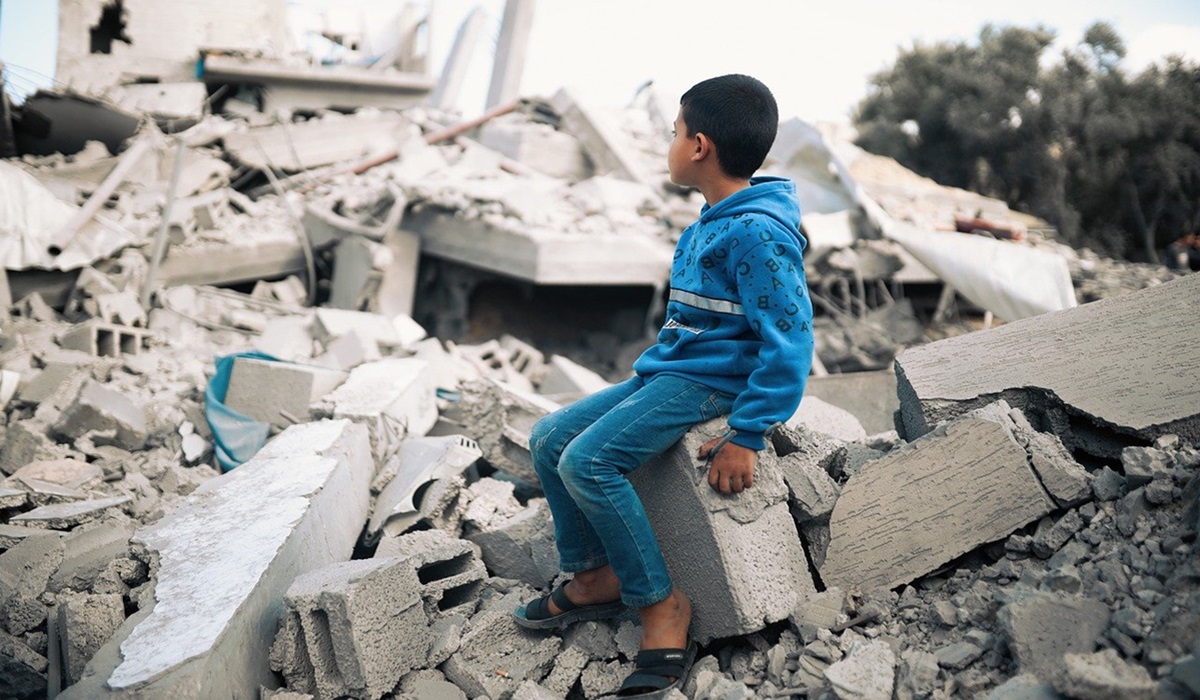Collateral Damage: When the Rules of War No Longer Matter and The Bombs Falling are Celebrated
- TDS News
- Breaking News
- September 21, 2024

Image Credit, Hosny Salah
Collateral damage has become an inevitable and tragic reality in modern warfare, where the rules of engagement are routinely disregarded, manipulated, or outright ignored. The nations and groups involved in these conflicts show little concern for the devastating human toll, with defense contractors and governments alike profiting from the destruction. The cost in human lives—civilians caught in the crossfire, their homes and communities reduced to rubble—has become a grim footnote in a geopolitical game. Israel, Great Britain, France, the United States, and others continue to wage war, their actions steeped in devastating consequences.
The current situation in Gaza, Palestine, Lebanon, and Syria is a vivid example of this disregard. Israel’s military operations in these regions, carried out under the pretense of precision targeting, have left a trail of obliterated schools, mosques, churches, grocery stores, and homes. Civilians have been killed, entire neighborhoods flattened, and vital infrastructure destroyed. Despite the claim that Israel is targeting militants hiding among civilians, the impact on the innocent is catastrophic. The argument that these are unfortunate casualties of war cannot obscure the reality: the lives of ordinary people are being sacrificed.
However, this does not absolve groups like Hamas and Hezbollah for their role in this cycle of violence. Both organizations have launched rocket attacks into civilian areas, not always distinguishing between military and non-military targets. These indiscriminate strikes often result in the deaths of civilians, including women and children, adding to the already unbearable toll. The firing of rockets into Israel, which regularly provokes retaliation, escalates the conflict and brings further suffering to the very people these groups claim to protect. Just as we condemn the overwhelming force used by nations, we cannot ignore the responsibility of groups like Hamas and Hezbollah when their actions lead to civilian casualties.
At the same time, we must recognize that these resistance movements did not arise in a vacuum. For years, Palestinians have lived under occupation and aparthied denied basic rights and sovereignty. The violence perpetuated by groups like Hamas and Hezbollah is rooted in this long history of struggle, resistance, and oppression. While their actions are subject to scrutiny, they also reflect the deep frustration and anger of populations who have been marginalized and brutalized for decades. Yet, the killing of civilians—whether by state forces or resistance groups—can never be justified.
Western powers like Great Britain and France play a significant role in sustaining these conflicts. These nations, long involved in the Middle East both as colonial rulers and now as arms suppliers, have contributed to the ongoing violence through weapons sales and military support. They provide Israel and other actors with the means to continue these wars, all while distancing themselves from the consequences. Britain and France, whose colonial legacies still echo in the region, cannot escape responsibility for the divisions and strife that plague the Middle East. Their continued support for military actions, both overt and covert, only deepens the wounds in these war-torn areas.
The United States, as the world’s largest arms dealer, shares much of the blame. For decades, the U.S. has provided military aid and weapons to allies in the region, rebel and insurgent groups, while conducting its own campaigns in Iraq, Afghanistan, and elsewhere. The U.S. government, driven by its deep ties to defense contractors, has perpetuated a global war economy that profits from the misery of civilians. Bombings and drone strikes have left communities devastated, and the rules of engagement, meant to protect civilians, have been rendered meaningless. Civilians, from Iraq to Gaza, bear the brunt of U.S. foreign policy, which prioritizes military dominance over humanitarian concerns.
Collateral damage is no longer an unfortunate byproduct of war—it is an accepted reality. Civilians, once protected by international law, are now seen as expendable. The rules of engagement, designed to limit harm to non-combatants, have been disregarded, and atrocities are met with silence or weak justifications. If these rules truly mattered, we wouldn’t be facing the current humanitarian crises unfolding in places like Gaza or Syria. The bombing of homes, hospitals, schools, and places of worship wouldn’t be routine. And yet, here we are, watching as the violence escalates, and the bodies of civilians pile up.
The defense industry, meanwhile, thrives. Weapons manufacturers in the United States, Britain, and France rake in billions of dollars from arms sales, indifferent to the bloodshed their products cause. Military contractors lobby for more wars, more conflicts, and more sales, fueling a never-ending cycle of violence. As long as there is profit in war, as long as defense companies and their government allies benefit from destruction, and their are politicians depending on defence contractor donations for relection, the bombing of civilian areas will continue.
When will it end? The truth is sobering. As long as powerful nations, resistance groups, and corporations are driven by the profits of war, as long as economic and political interests trump human life, the carnage will persist. Civilians will continue to suffer, caught between military powers and insurgent groups alike. The rules, once established to protect them, will remain irrelevant.
And so, we are left in a world where collateral damage is not just an accident but an accepted strategy. It doesn’t matter if the bombs are dropped by Israel, or rockets fired by Hezbollah or Hamas—when civilians die, something is terribly wrong. Until the global community prioritizes human life over military and economic interests, the bombs will keep falling, and the rules of engagement will remain nothing more than an empty promise.








